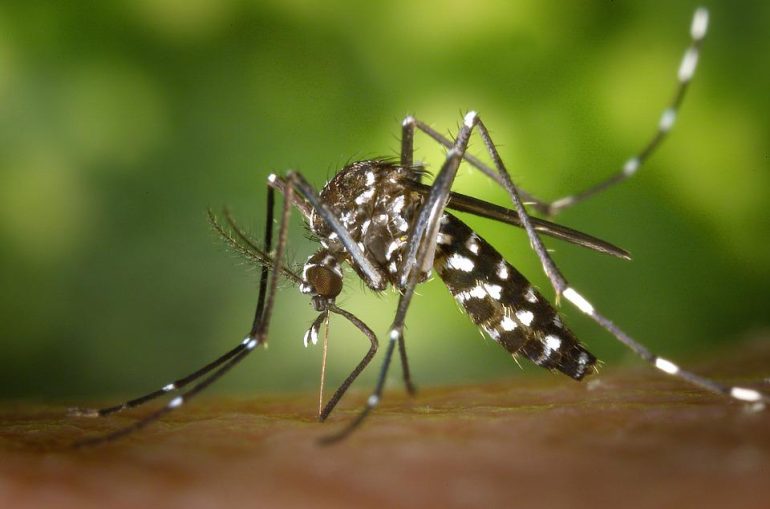Diseases passed to humans through mosquito bites could be reduced thanks to a method which poisons the female insects during sex.
A Macquarie University team genetically modified male fruit flies to produce venomous proteins in their semen while mating.
They call it the toxic male technique, which the study found reduced the life span of female fruit flies by up to 60 per cent.
But lead author and PhD student Sam Beach said he hoped to improve that figure.
“Ideally it’s quite rapid,” he said.
“We want that to be much closer to 100 per cent, like a much faster acting reaction.”
He said the female fruit flies lived for about six or seven days after they mated with the poisonous males.
‘A lot of good can be done’
The study, published in the journal Nature Communications, suggested the technique would have the same impact on mosquitoes.
“We’re not trying to completely eradicate these species everywhere at all times,” Mr Beach said.
“There are about 3,500 species of mosquito, but there are only about five to 10 or so that spread disease in humans.”
The research found reducing the population of mosquito species that carry deadly diseases — like dengue and zika — would in turn reduce how often they feed on human blood by up to 60 per cent.
Only females bite and ingest human blood.
“All [those species] are invasive outside of Sub-Saharan Africa,” he said.
“We’re just trying to push them back out of areas that human have introduced them.”
Mr Beach said facilities across the globe could mass produce eggs for these genetically modified mosquitoes, and freeze them for transport.
They would then be released in countries that have a disease outbreak, or significant insect population increase, to help manage the problem.
“Mosquito-borne illnesses are not as dire [in Australia] as they are in a lot of lower income countries,” he said.
“We think there’s a lot of good that can be done overseas.”
‘Comprehensive’ tests to investigate food chain impact
Mr Beach said he was confident the poisonous insects would not adversely affect their predators.
“These [proteins] are very, very toxic when directly injected into an animal,” he said.
“But it’s been found that they’re like 10 to 100 times less toxic when they’re eaten.”
He said the researchers would conduct “comprehensive” tests to investigate how predators like spiders, frogs and dragonflies, will respond.
“We are fairly confident … you know, these males [mosquitoes] are really, really tiny — just milligrams.”
But Mr Beach said the research team had a long way to go before the technique could be deployed to help disease outbreaks.
“This is, you know, the first step in a very, very long process,” he said.
“We’re not looking at, you know, releasing these mosquitoes in Australia anytime soon
Stay informed and ahead of the curve! Follow Africa Update Newspaper on WhatsApp for real-time updates, breaking news, and exclusive content. Don't miss a headline – join now!


